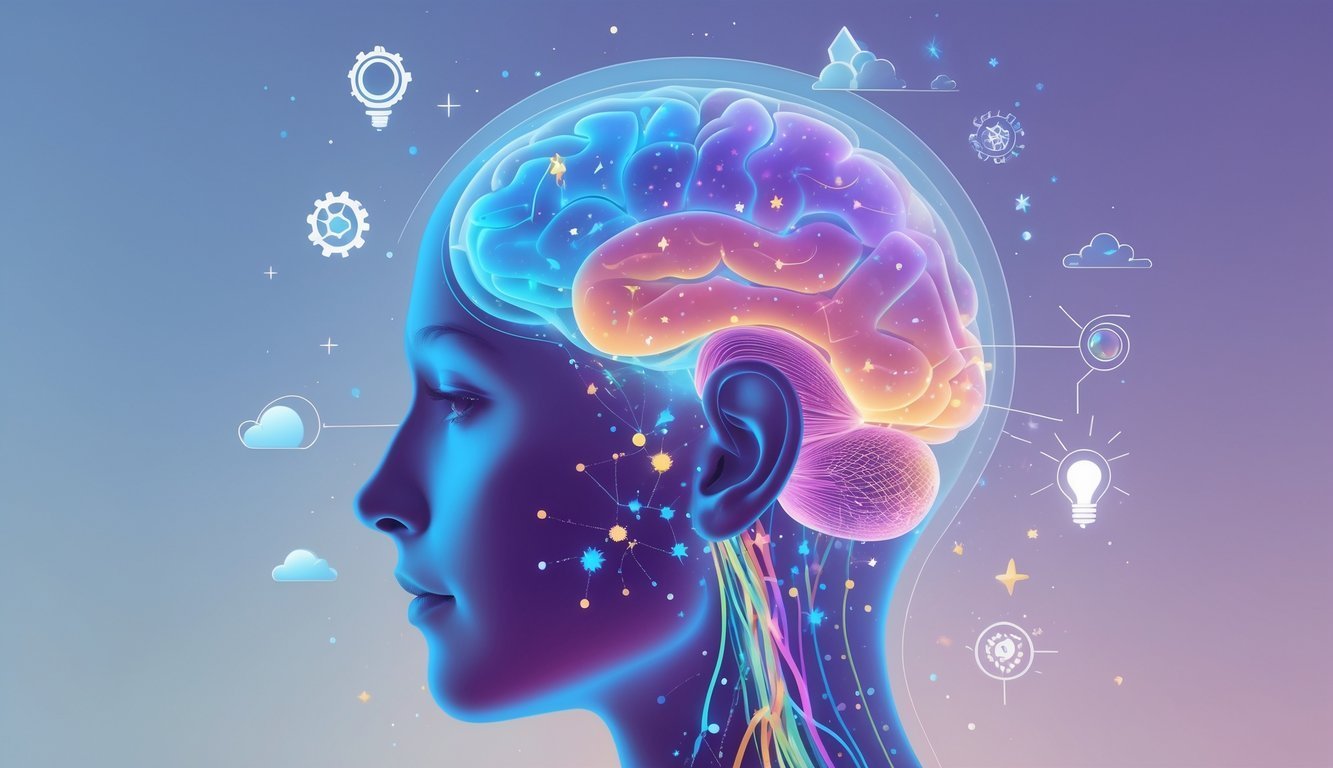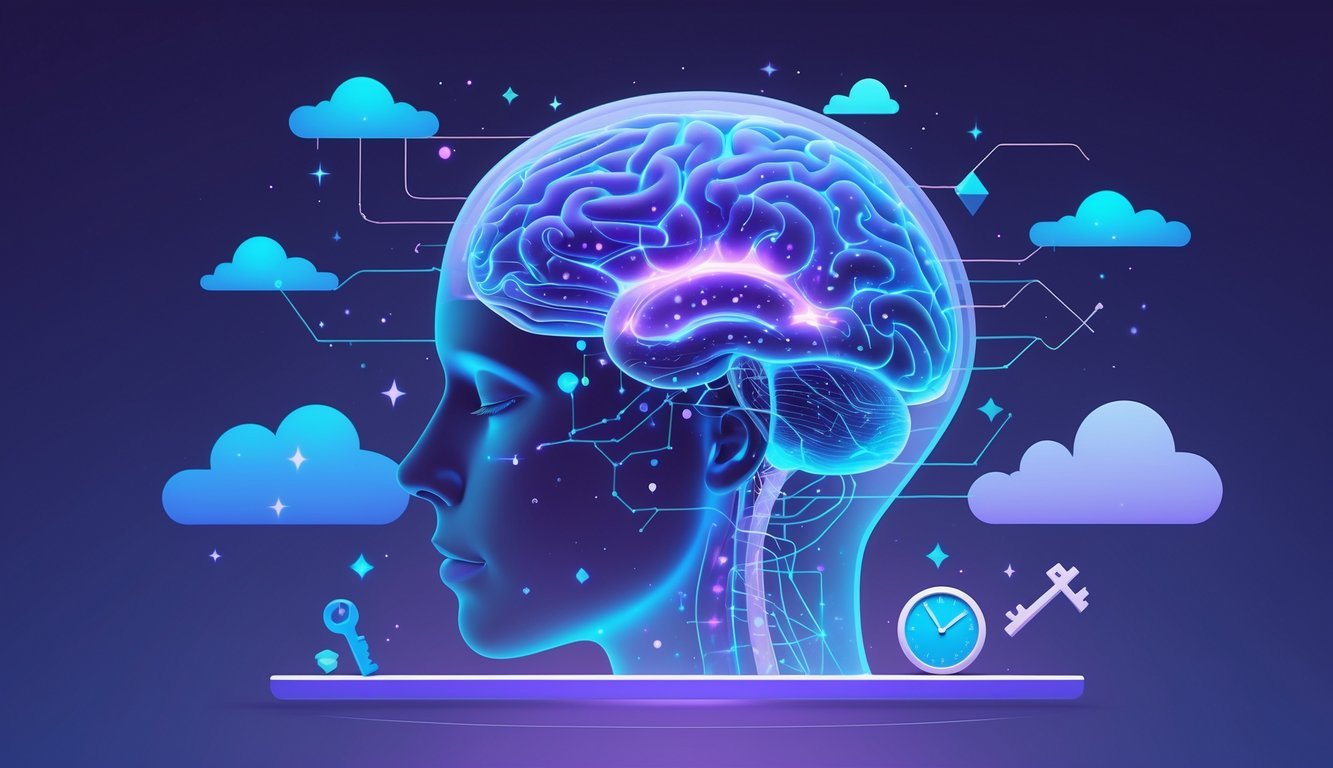Physical Address
304 North Cardinal St.
Dorchester Center, MA 02124
Physical Address
304 North Cardinal St.
Dorchester Center, MA 02124
Dreams reflect thoughts and emotions, serving as a mental diary. Analyzing them reveals patterns, supports emotional growth, and connects waking life to subconscious processes.

Dreams aren’t just random snapshots flickering through your brain at night.
They often reflect your thoughts and feelings in surprisingly personal ways.
Cognitive dream analysis approaches dreams as mental pictures—almost like your mind’s own visual diary. This method digs into the meaning behind your dreams by exploring how your thoughts shape what you dream about.
When you study your dreams this way, you’ll start to notice what beliefs or emotions pop up, and maybe even spot how you solve problems in your sleep.
It’s a chance to connect with your inner world and catch patterns you’d probably overlook during the day.
Analyzing dreams cognitively feels a bit like watching your brain’s private movie and trying to decode what it’s saying.
Sometimes, the message is clearer than you’d expect.
As you get into this approach, you’ll see therapists and dream researchers using it to support emotional growth and self-awareness.
It’s a simple idea but can be pretty powerful, since it treats your dreams as honest reflections of your waking mind instead of just strange riddles.

Dreaming involves your mind working through images, thoughts, and feelings using different mental functions.
Your dreams connect your waking experiences, your brain’s activity during sleep, and the way you process thoughts while dreaming.
Exploring these links gives you a better idea of how dreams relate to your daily life and brain function.
It’s kind of fascinating when you think about it.
According to the cognitive theory of dreams, your dreams reflect your thoughts and knowledge—pretty much like your waking mind does.
Psychologists such as Calvin S. Hall argued that dreams show how you organize and interpret your experiences.
Instead of being random, dreams tie back to your ideas and problems.
That’s a big shift from Freud’s focus on hidden desires.
Cognitive theory suggests your mind uses dreams to process information and get ready for new challenges.
The images and stories in your dreams are your brain’s way of working through emotions and memories.
While you sleep, your brain keeps busy with perception, memory, and problem-solving.
It pieces together dream images from your past experiences, thoughts, and emotions.
This is a lot like mind-wandering when you’re awake—your thoughts drift, but there’s still some logic behind them.
Dreaming cognition lets you work with emotions and solve problems without even realizing it.
Dream reports often show your brain trying to make sense of random signals and outside noises by creating stories.
This mix of senses and memories keeps your mind active, even when you’re resting.
REM sleep is the stage most people link with vivid dreaming.
During REM, your brain’s cortex lights up, especially in areas tied to emotion and memory, like the limbic system.
This activation helps create those wild dream images and stories.
Non-REM (NREM) sleep, on the other hand, has less brain activity but helps with memory consolidation.
You still dream in NREM, but those dreams usually feel less vivid and more like thoughts than movies.
Both REM and NREM play a part in how you dream, just in different ways.
Your brain cycles through REM and NREM several times each night.
This back-and-forth supports the neurocognitive theory, which connects dreaming to your ongoing brain functions—not just random noise.

Researchers use a variety of ways to look at what you dream and what those dreams might mean.
They also check how your dreams change as you grow and how you make sense of yourself and your world through dreaming.
Tools like computer software and statistics help make this kind of study clearer and more precise.
It’s not just guesswork.
You can break down dream content by looking at the elements in your dreams—people, emotions, conflicts, whatever pops up.
This is called content analysis.
It’s a way to spot recurring themes, like anxiety in nightmares or certain people showing up again and again. Quantitative analysis uses numbers to measure these patterns.
Researchers often use computer software to count words, themes, or types of emotions in your dream reports.
That makes it easier to compare lots of dreams and find links with your waking thoughts.
Cognitive neuroscience adds another layer by studying how neural networks in your brain work during dreaming.
Some studies show that brain areas tied to memory and emotion get especially active, which might explain why you dream about certain things.
If you want to understand your dreams, try keeping a dream journal.
Jotting down your dreams right after waking up helps you remember the details.
This habit supports more accurate dream interpretation.
When you interpret dream reports, you focus on how your dreams connect to your daily life.
For example, maybe your dreams reflect your conceptual systems—the way you think about yourself, other people, or conflicts you face.
Some methods look for obvious symbols, while others explore your feelings during the dream.
In cognitive-behavioral therapy, dream interpretation focuses on your waking thoughts and emotions, not just hidden meanings.
It’s a practical approach.
Your dreams—and how you understand them—change as you grow.
Kids’ dreams often show their developing self-conceptions and their growing ideas about the world.
As you get older, your dreams can show more complex thoughts, like dealing with conflicts or worries.
This connects to your cognitive achievement and your ability to solve problems.
Researchers track these changes to understand how dreaming links to brain development and your growing understanding of yourself and others.
This also helps with empirical dream research, where real data tests out theories about dreaming.

Understanding your dreams can give you clues about your thoughts, feelings, and even things that happened during the day.
The way you process information shapes what your dreams look like and what they mean.
It lets you see dreams as mirrors of your daily life.
By looking at the thoughts and emotions in your dreams, you get a better sense of what your mind is working through.
You might keep a journal to record dreams right after waking up.
Reviewing your dreams helps you spot patterns tied to your feelings or recent events.
Yes, it can show how your mind deals with stress, worries, or important decisions.
Dreams often mirror your mental state and help you understand your emotions a bit better.
Cognitive theory looks at your thoughts and emotions in dreams.
Biological theory focuses on brain activity and physical processes during sleep, without connecting dreams to your daily thinking.
It’s tough to prove exactly what a dream means.
Sometimes people read too much into dreams or overlook other factors, like brain chemistry, that also affect dreaming.
What’s on your mind during the day—your thoughts, worries, or even random memories—can sneak into your dreams at night.
Your brain grabs bits of your daily life and mixes them together to create those weird images and stories you see while dreaming.